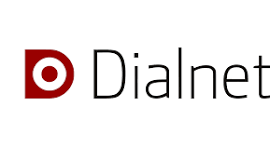Internships as Development of Digital Competences.Glimpsed from The Social Actors in The E.T.C. MotherRafols
DOI:
https://doi.org/10.70219/iuvm-22022-353Keywords:
Internship Program, Competences, Digital CompetencesAbstract
This article presents some contributions to the conceptualization of internships as the development of digital skills in the participants, as well as analyzing from the perspective of the students themselves, some of the characteristics that are considered determinants of their uniqueness as a training instance. at the Technical Commercial School (E.T.C.) Madre Rafols. In this sense, it is intended to reveal the process of internships as a developer of digital skills, for this reason it is studied glimpsing it from the social actors. The research paradigm is qualitative and the method is Husserl's phenomenology, the phases of the method were applied. The conception of the work was carried out from this phenomenological approach, since it refers to: the explanation of the essence of the experiences of the research subjects, and the phenomenon studied. The social actors are made up of 79 students of the 6th year of the E.T.C. Mother Rafols. The information was organized, categorized, coded and triangulated from the sources of information: in-depth interview, observation and written primary sources. As a result, the emotions present in the students before the action lived were revealed, describing the experiences and interpreting the knowledge acquired. A final reflection is made where the researcher as a knowing subject presents the Internships as a challenge with significant experiences for the development of digital skills.
References
Aguilar R. Y Otuyemi E (2020). La competencia digital es una necesidad permanente. Tecnológico de Monterrey. En la red en https://observatorio.tec.mx/edu-bits-blog/competencia-digital-una- necesidad-permanente/
Hurtado de Barrera, J.(2010) El proyecto de investigación. Ediciones Quirón. Bogotá- Caracas.
Ibáñez-Martín, J. A. (2009). La fundamentación filosófica de los nuevos planes de estudios. En A. Medina, Mª. L. Sevillano y S. De la Torre. Una universidad para el siglo XXI: EEES (pp. 17-19). Madrid: Universitas.
González, J. &Wagenaar, R. (eds.). (2003). Tuning Educational Structures in Europe. Informe Final. Fase 1. Bilbao: Universidad de Deusto.
Lévano-Francia, L., Sanchez, S., Guillén-Aparicio, P., Tello-Cabello, S., Herrera-Paico, N., Collantes-Inga, Z. (2019). Competencias digitales y educación. Propósitos y Representaciones, 7(2), 569-588. doi: http://dx.doi.org/10.20511/pyr2019.v7n2.329
López Gómez, E., (2016). EN TORNO AL CONCEPTO DE COMPETENCIA: UN ANÁLISIS DE FUENTES. Profesorado. Revista de Currículum y Formación de Profesorado, 20(1),311-322.[fecha de Consulta 11 de Noviembre de 2022]. ISSN: 1138-414X. Recuperado de: https://www.redalyc.org/articulo.oa?id=56745576016
Quintana, J. (2000). Competencias en tecnologías de la información del profesorado de educación infantil y primaria. Revista Interuniversitaria de Tecnología Educativa, 166-176
UNESCO. (2008). Normas UNESCO sobre competencias en TIC para docentes. Recuperado de http://www.portaleducativo.hn/pdf/Normas_UNESCO_sobre_Competen cias_en _TIC_para_Docentes.pdf
Vargas-Murillo, G. (2019). Competencias digitales y su integración con herramientas tecnológicas en educación superior. Cuadernos Hospital de Clínicas, 60(1), 88-94. Recuperado en 14 de noviembre de 2022, de http://www.scielo.org.bo/scielo.php?script=sci_arttext&pid=S1652- 67762019000100013&lng=es&tlng=es
Zavala, D., Muñoz, K., Lozano E.(2016). Un enfoque de las competencias digitales de los docentes. Revista Publicando, 3(9). 2016,330-340. ISSN 1390-9304. En la red en https://dialnet.unirioja.es/descarga/articulo/5833540.pdf
Downloads
Published
How to Cite
Issue
Section
License
Copyright (c) 2022 José Rafael Albarrán Bencomo

This work is licensed under a Creative Commons Attribution 4.0 International License.








